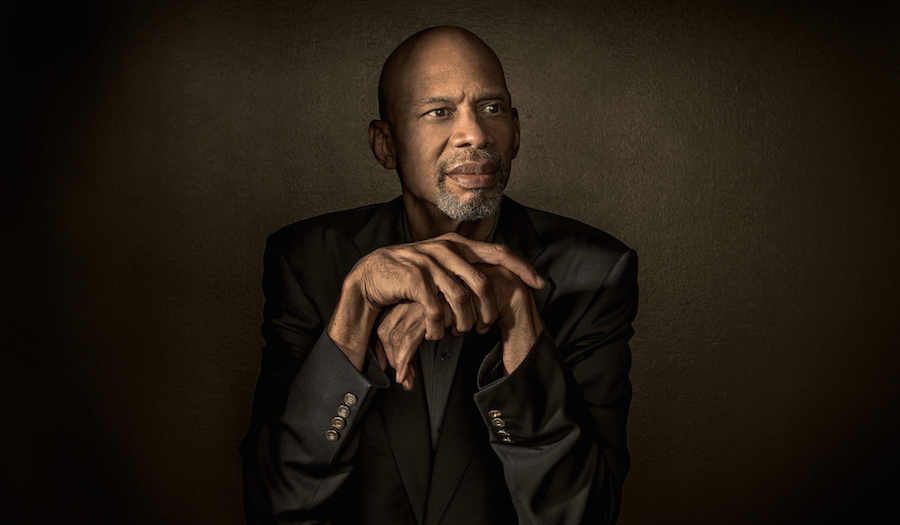Kareem Abdul Jabbar Opens Up About Civil Rights, Disadvantaged Kids, and Sherlock Holmes

Kareem Abdul-Jabbar is the very definition of a Renaissance Man. In addition to being the all-time top NBA scorer—including winning six championships and six MVP awards–—he is an actor (“Airplane”), newspaper columnist (“The Hollywood Reporter,” “The Guardian”), a television writer (“Veronica Mars”) and best-selling author.
His latest effort, “Mycroft and Sherlock: The Empty Bird Cage,” is book 3 of his iconic “Mycroft Holmes” series. Co-authored with Anna Waterhouse, Jabbar offers a unique perspective on the characters that Sir Arthur Conan Doyle brought to life in the 19th century.
1. What is it about the Sherlock Holmes series that appeals to you and talk about the genesis of the Mycroft books. How are your book they different from the Sir Arthur Conan Doyle series?
Since I was in high school I’ve been a fan of the Sherlock Holmes stories. On a pure entertainment level, trying to work out the mystery puzzles along with him is fun and challenging. On a more personal level, I admired how his vast knowledge protected him from others. I grew up feeling like an outsider because of my height and my race. Like Holmes, I tried to distinguish myself through my intellect not just my sports prowess. So I read voraciously in an attempt to protect myself from the racial attitudes at the time that deemed African-Americans as less intelligent than whites.
Although I tried to capture the same feeling for the era as Doyle’s novels, my books are different in that they focus on his brother, who is only mentioned a few times in the original stories but whom Holmes describes as being smarter than him. That gave me freedom to create a character however I saw him. But it was also a challenge to concoct plots and twists that would stand up to the original.
2. You’ve been quoted as saying, "… my involvement in civil rights is the most important thing I’ve done in my life.” Talk about your activism and where do you think we stand today?
The inequities I both witnessed toward others and experienced firsthand as a child forged my resolve to be active in changing things. As I became famous, it was easier to have my voice heard about these social inequities but it came with a cost. Sports writers and fans didn’t want me to bring politics up, just talk about sports. I’ve always loved sports, both playing and discussing, but it’s hard to sit at the banquet table when the folks serving you are starving.
Things are better today than they were in the sixties and seventies, but they are a long way from where we need to be. This country is like a house. The foundation, based on the U.S. Constitution, is strong. But it requires constant vigilance to keep dry rot, termites, and all the other infestations out. And it requires remodeling to incorporate progressive ideas. The hardest part is convincing some of the residents that ignoring problems will make them go away rather than get worse.
3. You formed the Skyhook Foundation, "whose mission is to 'Give Kids a Shot That Can’t be Blocked' by bringing educational STEM opportunities to underserved communities through innovative outdoor environmental learning.” How and why did this come about and who can become involved?
For me, the best way to bring about change is to start with the children. Economically disadvantaged children have so many obstacles to overcome right from birth—from proper nutrition, to equal education, to self-confidence. I wanted to help overcome some of those obstacles by giving them a fun and educational experience that might inspire them to take STEM courses and even pursue a STEM career. Many of the children I’ve talked to didn’t even think a career in science was possible for them until they attended Camp Skyhook.
We are always looking for individuals and corporations to help us bring kids to the outdoors for this unique and life-changing experience. If you want to help, contact us here: SkyhookFoundation.org
This Q&A was featured in the Oct. 27th edition of The Sunday Paper. The Sunday Paper inspires hearts and minds to rise above the noise. To get The Sunday Paper delivered to your inbox each Sunday morning for free, click here to subscribe.

